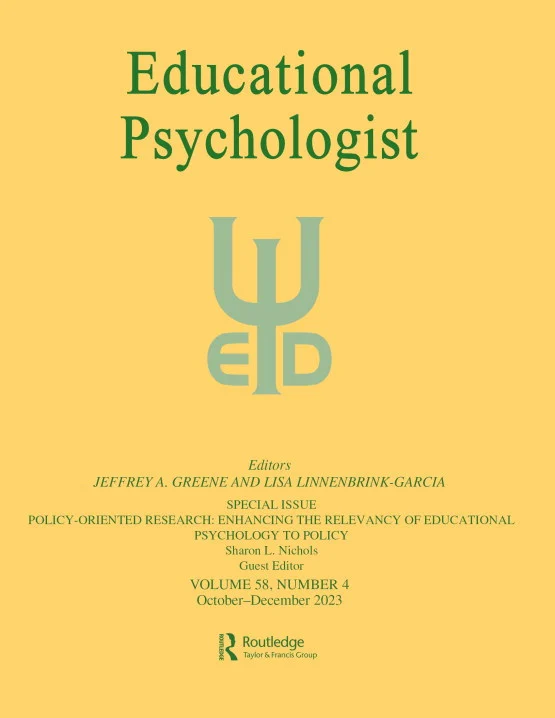批判性综合论证:走向学生思维的复杂性
IF 11.4
1区 心理学
Q1 EDUCATION & EDUCATIONAL RESEARCH
引用次数: 21
摘要
教育中的协作论证,即学生一起构建和批评论点,是许多学科的重要社会实践,也可以发展概念理解。本文阐述了我在协作论证方面的研究议程的演变,从学生话语中的反论证和反驳的生成到我所谓的批判性综合论证(CIA)。中央情报局的框架包括教学生提出批判性问题,以评估论点的力量和说服力。除了传统的反驳之外,它还涉及生成(a)权衡成本和收益(或对于科学论证,替代模型的证据和合理性)的综合反驳,或(b)涉及设计论证(或对于科学论证,多个因素和约束的整合)。讨论了与术语、教学、学生学习进展、教师专业学习、公共话语以及向学生教授复杂、批判性思维的必要性相关的问题。本文章由计算机程序翻译,如有差异,请以英文原文为准。
Critical integrative argumentation: Toward complexity in students’ thinking
Abstract Collaborative argumentation in education, where students work together to construct and critique arguments, is an important social practice in many disciplines and can also develop conceptual understanding. This article addresses the evolution of my research agenda on collaborative argumentation from just scaffolding the generation of counterarguments and rebuttals in students’ discourse toward what I call critical, integrative argumentation (CIA). The CIA framework involves teaching students to ask critical questions to assess the strength and cogency of arguments. It also involves generating, in addition to conventional refutations, integrative refutations that (a) weigh costs and benefits (or for scientific arguments, the evidence for and plausibility of alternative models), or (b) involve design arguments (or for scientific arguments, the integration of multiple factors and constraints). Issues related to terminology, instruction, student learning progressions, teachers’ professional learning, public discourse, and the need to teach complex, critical thinking to students are discussed.
求助全文
通过发布文献求助,成功后即可免费获取论文全文。
去求助
来源期刊

Educational Psychologist
Multiple-
CiteScore
19.10
自引率
3.40%
发文量
16
期刊介绍:
The Educational Psychologist is a scholarly journal dedicated to exploring the psychology of learning and instruction. Articles in this journal encompass a diverse range of perspectives, from examining psychological mechanisms to exploring social and societal phenomena related to learning and instruction. The journal publishes theoretical and conceptual articles, as well as reviews and meta-analyses, that significantly contribute to theory or advance the methods used to explore educational psychology. Emphasizing innovation and advancing understanding, the journal does not publish articles solely reporting the methods and results of empirical studies; instead, all submissions, including reviews and meta-analyses, must offer clear implications for advancing theory. In addition to regular articles, the journal features special issues that delve into important themes in educational psychology, along with focal articles accompanied by peer commentary.
 求助内容:
求助内容: 应助结果提醒方式:
应助结果提醒方式:


